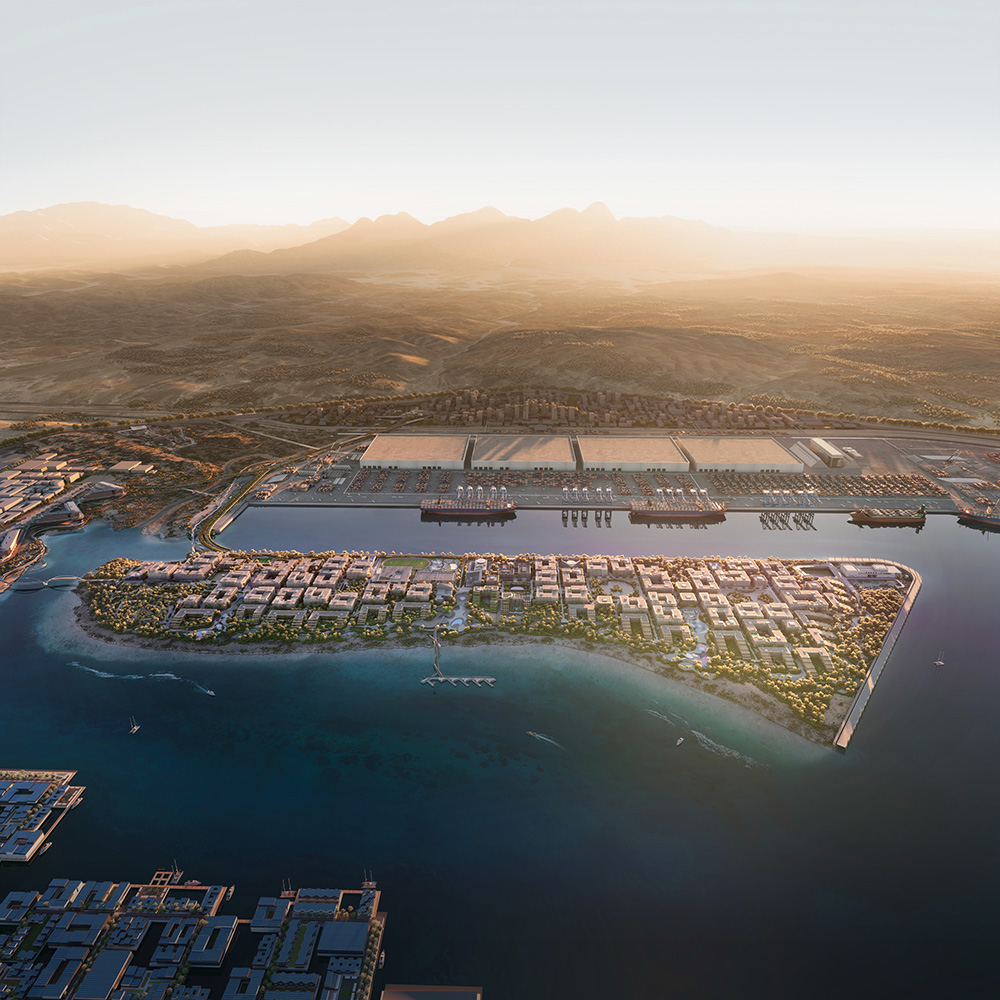
The Middle East Proptech Revolution Western Markets Missed
The Middle East Proptech Revolution Western Markets Missed
While you've been optimising spreadsheets, the Middle East has been reimagining real estate.
The contrast couldn't be more stark. Western proptech remains fixated on incremental improvements to existing systems. Meanwhile, Middle Eastern markets are building entirely new ecosystems from the ground up.
"The Western parts of the world are very attached to the way they've always done things and can't see the value of digital solutions or making things simpler," explains Mark Austin, Co-Founder and CEO of Lendhaus.
"Whereas in the Middle East, because they are starting from a very low base, they are open to almost anything. They have the strategy and the emphasis to make it happen."
This fundamental difference in approach is reshaping the future of commercial real estate financing globally. And it's happening faster than most Western players realize.
Building New Cities, Not Just New Apps
The scale of Middle Eastern proptech innovation is breathtaking.
"Saudi Arabia has a gigantic pipeline of projects they're working on," Austin notes. "The biggest is the NEOM project, but there are at least half a dozen other cities being built too."
These aren't minor developments. They're entire cities being conceived, planned, and built with technology at their core.
"The size and vision for these projects are enormous. To make it happen, they have to start from scratch in terms of how they think and build."
This clean-slate approach enables possibilities that would be unthinkable in Western markets, where legacy systems and entrenched interests often stifle innovation.
Middle Eastern proptech drew the most venture capital funding in the first half of 2024, overtaking the traditionally dominant fintech sector. This shift reflects the region's strategic prioritization of real estate innovation while Western firms continue focusing on incremental solutions. (AGBI)
Patient Capital, Long-Term Vision
The funding model makes all the difference.
"The sheer size of sovereign wealth funds in the Middle East, especially in Saudi Arabia and the United Arab Emirates, allows them to take a long-term view," Austin explains.
Unlike Western venture capital, these funds "do not have to answer to the short-term view of the stock market. They have long-term vision and can deliver on those platforms with patience and capital."
This long-term perspective enables transformative thinking rather than quarterly optimisation.
While Western proptech often focus on automating repetitive tasks and making incremental efficiency gains, Middle Eastern innovation aims for complete reinvention. Projects like NEOM are implementing transformative systems that demonstrate how the region is pursuing fundamental reinvention rather than optimization. (BuiltIn)

Dubai skyline
Breaking Down Barriers to Frictionless Financing
For commercial real estate financing to become as frictionless as online stock trading, several barriers must fall.
"Often the strict structures and procedures required by global financiers slow the process down," Austin points out.
"This is driven by a lack of defined and automated due-diligence processes, manual signature-based documents, and a fallback to 'this is how we've always done it.' These create delays in most Western countries."
The Middle East is addressing these barriers differently by building new systems from scratch rather than trying to patch existing ones.
The result? A vision of global, verified, and transparent processes based on visibility for all participants.
"A 'single source of truth' for all transactions is a necessity and will improve the transaction process substantially," says Austin.
The Transformation Has Already Begun
This isn't some distant future scenario.
"It's starting to happen now," Austin states. "Most large institutions use electronic and digital channels for small and large transactions."
The first stage will focus on "reducing transaction costs and standardising, simplifying the verification of data."
The Middle East real estate market is expected to expand by up to 111% during the next five years, with technologies becoming the most significant driver behind this growth. Annual growth in the economic contribution of AI alone is expected to reach 20-34% per year across the MENA region by 2030. (Zawya)
As these innovations mature, they'll increasingly influence global practices.
Adapt or Become the Next Kodak
For Western proptech companies and financial institutions, the implications are clear.
"They will become too expensive to deal with and will not be competitive," Austin warns.
He draws a parallel to the rise of e-commerce: "An extreme example is the rise of large e-commerce platforms like Amazon and AliExpress. They are fast, easy to use, and both sides are verified. It's an established model."
The message is blunt: "If companies don't want to become the next Kodak or Blockbuster, they have to get involved."
Positioning Your Organisation for the Future
How can you prepare for this transformation?
First, recognise that cultural differences aren't the primary driver of innovation approaches. "Projects in all areas of the world need to be financially viable and provide value for all parties in the ecosystem," Austin notes.
The key difference is willingness to reimagine processes from the ground up rather than incrementally improving existing ones.
Second, look beyond your local market. The future of commercial real estate financing will be global, standardized, and transparent.
Third, invest in technologies that create a single source of truth for all transactions. This will be the foundation of frictionless financing.
Finally, be willing to question how things have "always been done." The companies that thrive will be those that can envision and implement entirely new ways of operating.
The Convergence Is Coming
When the Middle Eastern transformative approach and Western incremental approach converge, the global commercial real estate financing landscape will be transformed.
The vision is clear: a global, verified, and transparent process based on visibility for all participants.
This isn't just about making existing processes more efficient. It's about reimagining commercial real estate financing from the ground up.
The question isn't whether this transformation will happen. It's already underway.
The question is whether your organization will lead, follow, or be left behind.
In the words of Lendhaus: "In commercial real estate, financing is a big deal. Lending and borrowing shouldn't be."
The Middle East is showing us how to make that vision a reality. Western markets would be wise to pay attention.

